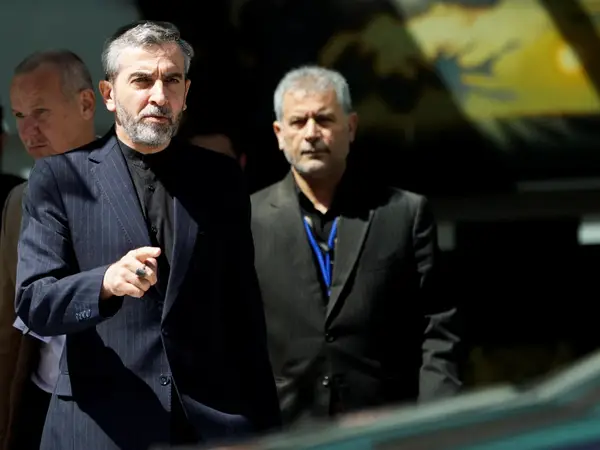Sixteen months after talks first began to revive the 2015 Iran nuclear deal, negotiations have boiled down to issue of sanctions and wording of a ‘final text.’
After Iran responded Monday evening to the European Union – mediating indirect United States-Iran discussions – to proposals circulated August 8 by EU official Enrique Mora, US State Department spokesman Ned Price said he was “not going to get into the specifics of any language that may or may not result from this.”
Information gleaned by Iran International suggests Iran has eased its demands, especially in accepting the ‘language’ in the EU text over the status of International Atomic Energy Agency (IAEA) enquiries into unexplained uranium traces found at sites not declared as nuclear-related. Tehran has publicly demanded the IAEA drop the probe.
Remaining issues, Iran International has reported, concern ‘guarantees’ Iran seeks over its access to world markets under terms specified by the 2015 deal, the JCPOA (Joint Comprehensive Plan of Action). According to Iran International, Iran has not accepted as sufficient a clause in the EU text offering Tehran and entities dealing with Iran, once the JCPOA was restored, a one-year respite from US sanctions should the JCPOA again fall away, presumably by Washington leaving the deal as it did in 2018 under President Donald Trump.
The long-running talks – Iran and six world powers in Vienna April 2021-March 2022; Iran-US bilaterally in Doha in June, and Vienna August 5-8 – have survived apparent setbacks including the change of president in Iran and the Ukraine crisis.
Core challenges
But the core challenges have remained agreeing which US sanctions are incompatible with the JCPOA and how exactly the Iran nuclear program, refined and expanded since 2019, should be returned to JCPOA limits. On the latter, there have been reports Iran has tried to gain acceptance for some of its nuclear developments, for example by keeping in storage rather than decommissioning advanced centrifuges barred under the 2015 deal.
Both the US and Iran have outwardly placed the onus on the other. “In return for Iran placing verifiable and permanent limits on its nuclear program, we would lift sanctions on that nuclear program,” Price said Monday. In Tehran Monday, Hossein Amir-Abdollahian, Iran’s foreign minister, said Iran wanted “a good, sustainable and strong agreement,” and awaited US “flexibility.”
Throughout the 16-month talks, there have been many reports of single issues supposedly blocking agreement. These have included the US listing of the Iranian Revolutionary Guards (IRGC) as a ‘foreign terrorist organization,’ which Washington argues is unrelated to the JCPOA while Iran argues the listing was specifically linked by the Trump administration to ‘maximum pressure.’
Likewise, while the US – along with the three European JCPOA signatories, France, Germany and the United Kingdom – have argued the IAEA probe into uranium traces is a matter of Iran’s basic ‘safeguards’ commitments under the Nuclear Non-Proliferation Treaty, Iranian officials have argued the agency’s enquiries were revived only after ‘politically-motivated’ allegations in 2018 by Israeli Prime Minister Benjamin Netanyahu.
‘Nothing is agreed…’
But whatever possible concessions either the US or Iran have floated, “nothing is agreed until everything is agreed,” as US special envoy Rob Malley has put it, most recently in a PBS interview August 12.The fate of the JCPOA now hangs on whether negotiators can find a written text acceptable to all concerned.
Amir-Abdollahian said Monday that while “the coming days” were “very important,” it was possible that “we will need more efforts and talks ... to resolve the remaining issues.”
Ellie Geranmayeh, deputy director of the Middle East and North Africa program at the European Council for Foreign Relations, said Monday that if Iran wanted further talks on the Mora text, the US and Europeans would face a crucial choice in judging“how many amendments Iran seeks and how substantive they are…”
